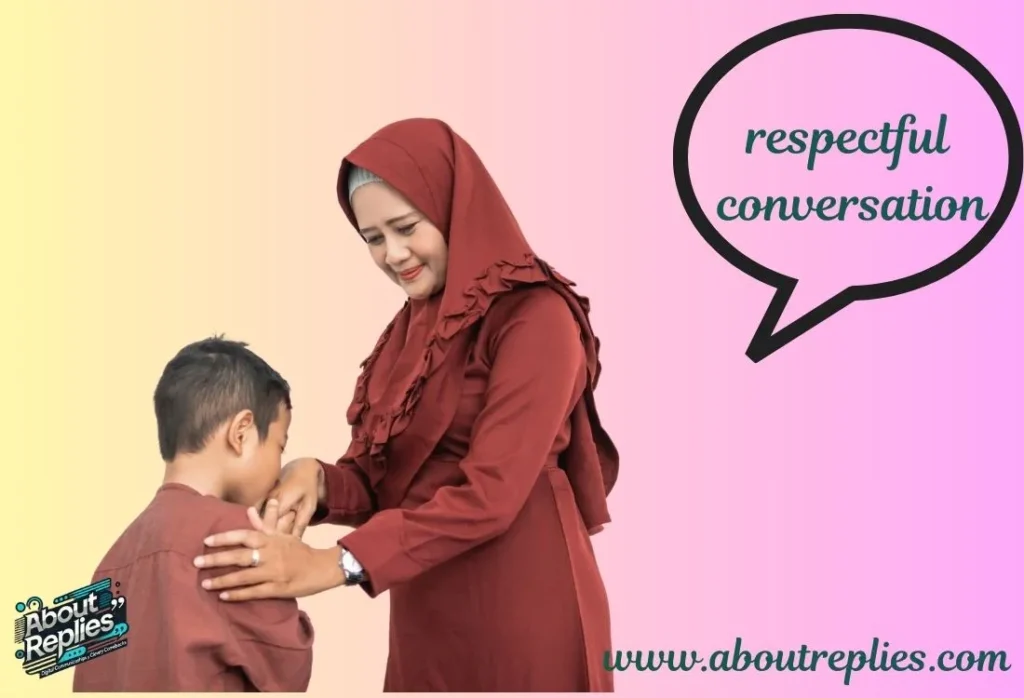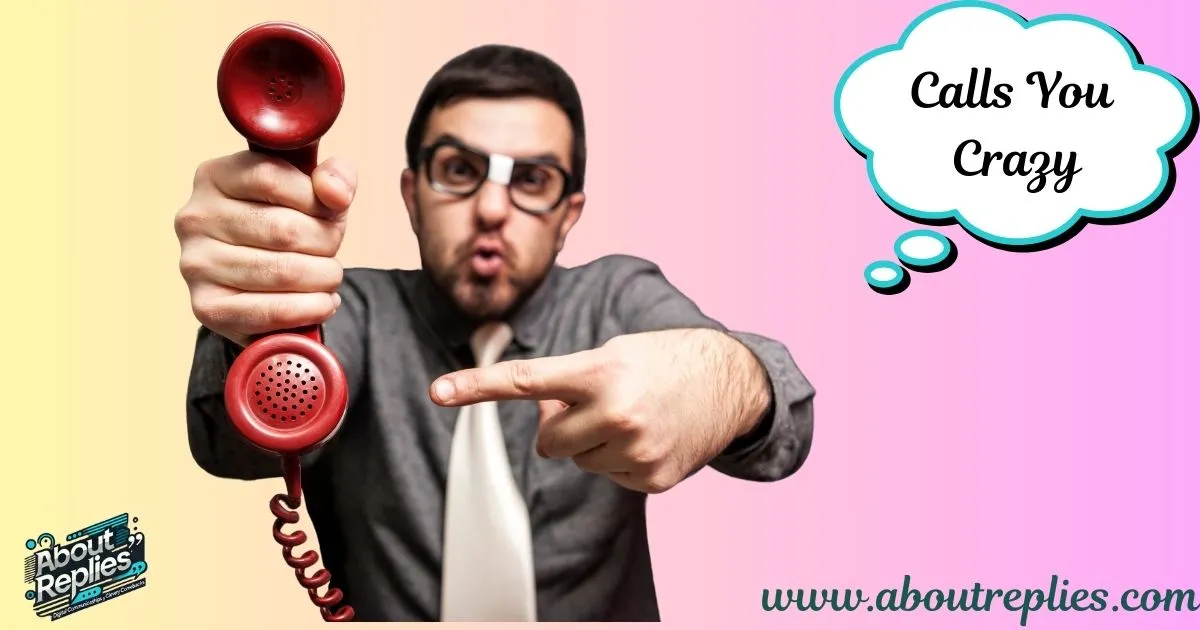“The stigma of being called crazy can be tough, but your response can change everything.”
Being called “crazy” can be disheartening, especially when it’s used to undermine your thoughts, feelings, or actions. The stigma surrounding the label of “crazy” can create a sense of isolation, and it often reflects a deeper misunderstanding of mental health, emotions, or personal experiences.
But it’s important to recognize that labeling someone as “crazy” says more about the speaker than the person it’s directed toward.
Responses to this label are crucial, as they not only help you protect your mental and emotional health, but also offer an opportunity to educate others, advocate for understanding, and stand firm in your identity.
If you’ve ever been labeled as “crazy,” you might feel a rush of frustration or confusion. However, your response plays a crucial role in transforming the moment into an opportunity for empowerment.
This article will equip you with 45 best responses to challenge and reframe the stigma of being called crazy. You’re aiming for empathy, humor, assertiveness, or education, there’s a response that will help you navigate the situation with confidence and grace. So, let’s dive in and find the perfect way to respond, reclaim your narrative, and change the way people perceive you.
The responses outlined in this article go beyond mere comebacks—they’re designed to foster self-respect, empathy, and resilience. Whether you’re in a personal, social, or professional situation, these responses allow you to set boundaries, educate others, and stay true to yourself.
This isn’t just about defending your actions; it’s about challenging harmful stereotypes, promoting mental health awareness, and asserting your right to be understood. Responding to the “crazy” label isn’t about fighting back it’s about standing up for your individuality and encouraging positive change. Keep reading to explore powerful ways to respond.
The Stigma of the ‘Crazy’ Label
The term “crazy” often carries a negative, harmful stigma, especially when used to describe someone’s behavior, mental state, or personality. This label is rooted in misunderstanding and societal stereotypes surrounding mental health, which can lead to feelings of shame or alienation. Society tends to shy away from things it doesn’t understand, and “crazy” is an easy way to dismiss or belittle others who don’t conform to expected norms. It’s time to challenge this stigma and find healthy ways to respond when faced with it.
Best Responses When Someone Calls You Crazy
Responding with Empathy and Understanding
Responding with empathy can be a great way to de-escalate the situation and open a door for a more meaningful conversation. It shows maturity and encourages compassion for both yourself and the other person.
- “I understand where you’re coming from, but I see things differently.”
- “I know my actions might seem unusual to you, but there’s more to the story.”
- “It seems like you’re struggling to understand, let’s talk about it.”
- “I respect your opinion, even if it’s not how I feel.”
- “It’s okay if we don’t always agree. Let’s find common ground.”
- “Everyone has their own perspective, and I value mine.”
- “I’m just expressing myself in my own way.”
- “It’s okay to feel confused about others’ choices. I can help explain.”
- “Sometimes what I do doesn’t make sense to others, but that’s alright.”
- “I think it’s a misunderstanding, but I’m happy to talk about it.”
Asserting Your Boundaries
It’s important to set clear boundaries when someone calls you crazy, as it lets the person know that such labels are unacceptable and disrespectful.
- “Please don’t call me crazy. I’m just different.”
- “I’d appreciate it if you didn’t label me like that.”
- “That term feels disrespectful, and I’d rather we not use it.”
- “It’s not okay to call me crazy. Let’s talk about it calmly.”
- “I’d like to have a respectful conversation without labeling each other.”

- “You’re crossing a boundary when you say that, and I don’t appreciate it.”
- “I am not crazy; I just see things differently from you.”
- “Please be mindful of your words, they have power.”
- “I don’t tolerate being labeled like that. Please stop.”
- “Calling me crazy is a harmful label. Let’s keep it respectful.”
Educating and Raising Awareness
The best way to change someone’s perspective on the “crazy” label is through education and raising awareness about mental health, personal differences, and empathy.
- “Mental health is complex, and we shouldn’t throw labels around.”
- “What’s considered crazy by some is just unique to others.”
- “It’s important to understand that different people process things differently.”
- “I wish we could approach mental health with more compassion and understanding.”
- “Calling someone crazy doesn’t help—it just perpetuates negative stereotypes.”
- “Many people experience things that others don’t understand. Let’s be kind.”
- “Let’s have an open conversation about mental health so we can be more supportive.”
- “Mental illness doesn’t equate to being mistaken. It’s time we normalize the conversation.”
- “Being labeled asmistaken can be harmful. Let’s change that narrative.”
- “Everyone has their own struggles, and we should approach each other with kindness.”
Responding with Humor and Wit
Sometimes, using humor or wit can deflect the negative energy of the situation while keeping things lighthearted.
- “Well, I guess that makes me the life of the party!”
- “Crazy? I prefer the term ‘extraordinary’.”
- “I might be crazy, but at least I’m not boring!”
- “Call me crazy, but I think I’m just ahead of my time.”
- “Crazy? I’m just a limited edition!”
- “I think you mean ‘wildly creative’!”
- “Well, you know what they say: Crazy is just another word for ‘out of the box’.”
- “It’s okay. Crazy runs in the family.”
- “Who needs normal when you can be fun?”
- “I’ll take ‘crazy’ as a compliment.”
Seeking Support and Validation
When you’re called mistaken reaching out to a supportive community can offer you validation and strength in your response.
- “I’m reaching out to friends who understand me better.”
- “I know I’m not crazy, and those who know me best support that.”
- “I trust the people around me to see things from my perspective.”
- “My family and friends understand me in ways that others might not.”
- “I surround myself with people who value my individuality.”
- “Having a strong support system helps me handle moments like this.”
- “I’ll talk to my therapist about this to get some perspective.”
- “It’s good to have a safe space with people who respect me.”
- “I’ve been through this before, and I know I’m not alone.”
- “Talking to people who validate my feelings helps me stay strong.”
Read more: Best Responses to “You’re a Dime”
Responding with Confidence and Self-Assurance
Sometimes, the best response to being called mistakenis to simply stand tall in your confidence and assert who you are.
- “I’m confident in who I am and how I express myself.”
- “I don’t need validation from anyone else. I know who I am.”
- “Being called mistaken doesn’t change how I see myself.”
- “I’m secure in my identity, and no label will make me doubt that.”
- “It doesn’t matter what others say. I am confident in my choices.”
- “I know who I am and what I stand for. I don’t need anyone’s approval.”
- “I’m comfortable being unique, and I embrace it.”
- “My self-assurance comes from within. No label can change that.”
- “I don’t let negative words affect how I feel about myself.”
- “Confidence is key, and I wear it proudly.”
Compassion and Understanding Response
Responding with compassion and understanding allows you to show that you can handle the situation with grace, even in the face of judgment.
- “I understand that my actions might seem odd to you, but I’m okay.”
- “It’s okay if you don’t understand. I don’t mind explaining.”
- “I understand your confusion, and I’m open to talking about it.”
- “Let’s approach this with an open heart and mind.”
- “I know you didn’t mean to hurt me. Let’s talk it through.”
- “I get it, you might not understand, but I’m here to help explain.”
- “Let’s have a compassionate conversation about what’s really going on.”
- “We all see things differently, and I appreciate your perspective.”
- “I know it can be hard to understand. Let’s take a moment and talk.”
- “I’m sorry if I made you uncomfortable. That wasn’t my intention.”
Responding with Humor and Lightheartedness
Lightening the mood with humor can help defuse the situation and turn a negative moment into a positive one.
- “I guess I’m the queen/king of mistakencrazy!”
- “I might bemistaken, but I’m definitely not boring.”
- “mistaken? Nah, I’m just a bit too much fun for most people!”
- “Well, I am a limited edition, after all!”
- “Crazy? No, I’m just living on the edge.”
- “I don’t mind being called mistaken as long as you’re laughing!”
- “I guess I’m just a little more ‘extra’ than others.”
- “I think you mean ‘eccentric’!”
- “Well, I’ve got plenty of fun stories to back that up!”
- “Crazy is just another word for ‘adventurous’!”
Empowerment and Advocacy Response
Empowering yourself and others in the face of being called crazy can shift the narrative toward positive advocacy.
- “I advocate for mental health and personal differences. Let’s change the way we speak.”
- “Being called crazy doesn’t define me. I define myself.”
- “We need to stop using harmful labels like crazy and start supporting one another.”
- “I’m proud of who I am, and I won’t let anyone’s words take that from me.”
- “Let’s start a conversation about how we can all support each other.”

- “I’ll advocate for my own worth, regardless of how you see me.”
- “It’s time we raise awareness about mental health and stop stigmatizing others.”
- “We need more empathy in the world, and I’m here to promote it.”
- “Let’s work together to break down harmful stereotypes.”
- “I stand up for my uniqueness, and I encourage others to do the same.”
Responding with Resilience and Self-Care
Resilience and self-care are your best tools in responding to judgment. Taking care of your mental and emotional well-being can help you navigate difficult situations.
- “I’m focused on my mental health, and I won’t let negativity affect me.”
- “Self-care is essential. I take care of myself, no matter what others say.”
- “I’ll always bounce back because I know how to take care of myself.”
- “Resilience is about staying true to who you are, no matter the challenges.”
- “When people call me mistaken, I choose to focus on my well-being.”
- “I know who I am, and that’s what matters most.”
- “I practice self-love and care, so others’ opinions don’t affect me.”
- “Self-care helps me stay grounded, even in tough situations.”
- “I prioritize my happiness and well-being above all else.”
- “I’ll take care of myself and continue thriving.”
Best Responses When Someone Calls You Crazy (Funny)
- “Crazy? I prefer the term ‘mentally creative.’”
- “Thanks! Normal is so boring anyway.”
- “I know, right? That’s my secret superpower!”
- “Crazy is just a word boring people use to describe fun people.”
- “Call me crazy, but I think you secretly like it.”
- “Why thank you! It takes a special kind of crazy to be this awesome.”
- “I’m not crazy—I’m just creatively unhinged!”
- “Oh, you haven’t even seen the half of it yet!”
- “Crazy? That’s just what the geniuses are called before they’re famous.”
- “I’m not crazy, I’m just ahead of the curve.”
- “Well, someone’s gotta keep life interesting!”
- “Crazy? That’s rich coming from you!”
- “I prefer ‘eccentric’—it has a better ring to it.”
- “I’m not crazy—I’m just a little mad scientist on the side.”
- “Call me crazy, but I’m totally rocking it, aren’t I?”
How to Respond When a Girl Calls You Crazy
- “Only for you, though!”
- “Well, you bring it out in me!”
- “Crazy? Nah, I’m just wildly in love with life—and maybe you.”
- “Takes one to know one, doesn’t it?”
- “Crazy? You’re the one who makes my head spin!”
- “Only as crazy as you let me be!”
- “Admit it—you secretly love it.”
- “Crazy enough to make you smile, though!”
- “Well, someone’s gotta keep things interesting.”
- “You think I’m crazy? That’s adorable!”
- “Aw, you’re just saying that because you like me.”
- “Crazy? Nah, just passionate about everything—including you.”
- “Oh, don’t act like you don’t love it!”
- “Crazy about you, maybe!”
- “I think you’re mistaking crazy for adventurous!”
Comebacks When a Guy Calls You Crazy
- “Crazy? No, I’m just full of personality!”
- “Crazy? Coming from you, that’s a compliment!”
- “Oh, sweetheart, you have no idea!”
- “Crazy enough to keep you on your toes!”
- “Well, someone’s gotta make life exciting!”
- “You call it crazy, I call it passionate.”
- “Crazy? I’d prefer to call it ‘limited-edition.’”
- “If I’m crazy, what does that make you for hanging out with me?”
- “Crazy? Nah, I’m just thinking outside the box—try it sometime!”
- “Well, at least I’m not boring!”
- “You say crazy like it’s a bad thing.”
- “Crazy? You wish you could keep up!”
- “Guess that makes me unforgettable, huh?”
- “Don’t worry, my crazy matches your weird perfectly.”
- “I’m not crazy, I just have better ideas than most people.”
How to Respond When Someone Calls You Crazy
- “Crazy? Nah, just a misunderstood genius!”
- “Well, someone’s gotta be!”
- “Crazy? That’s just my default setting.”
- “If by crazy you mean awesome, then thanks!”
- “Crazy is just my way of saying I’m free-spirited.”
- “I prefer to call it ‘spontaneous brilliance.’”
- “Don’t knock it until you try it!”
- “Crazy? That’s just the spice of life!”
- “I’m not crazy, I just know how to have fun!”
- “Well, I’d rather be crazy than dull.”
- “If I’m crazy, what does that make you for noticing?”
- “You say crazy, I say unique.”
- “Crazy? Nah, just allergic to boring.”
- “I’m not crazy—I’m just living life at full speed!”
- “Crazy? That’s just how I keep things interesting.”
Seeking Professional Support
Sometimes, it’s helpful to seek professional support when dealing with negative labels like “crazy.” A therapist or counselor can provide guidance on how to handle emotional and mental well-being, equipping you with tools for coping and setting healthy boundaries. They can help you process any negative feelings that arise and develop strategies to handle judgment in a way that promotes emotional healing and resilience.
Building a Supportive Community
Building a supportive community is key in combating the stigma associated with the “crazy” label. Surround yourself with people who understand and respect you, offering emotional support and guidance when needed. Whether through friends, family, or online groups, having a circle of trusted individuals who lift you up can empower you to stand strong against harmful labels. It’s important to remember that you are not alone—many others are on a similar journey and can offer support.
FAQS
- What should I do when someone calls me crazy?
Responding with confidence, humor, or empathy can help you handle the situation with grace. - How can I educate someone who calls me crazy?
Share your perspective calmly and raise awareness about the harm caused by such labels. - Is humor a good response to being called crazy?
Yes, humor can defuse the situation and make it easier to handle. - What is the best way to set boundaries with someone who calls me crazy?
Assert your boundaries clearly and let them know that such labels are disrespectful. - How can I protect my mental health when faced with judgment?
Focus on self-care, seek support, and practice resilience to protect your emotional well-being.
Wrap Up
When someone calls you “crazy,” it’s an opportunity to stand your ground and redefine how you are perceived. The responses in this article provide a variety of ways to navigate this situation, from empathy and humor to education and empowerment. You’re asserting boundaries, seeking support, or advocating for mental health, your response can help break down harmful stereotypes and promote understanding. Remember, you are not defined by labels; your worth is in your unique expression and strength. Stay resilient, stay true to yourself, and let the world see the power of your individuality.


